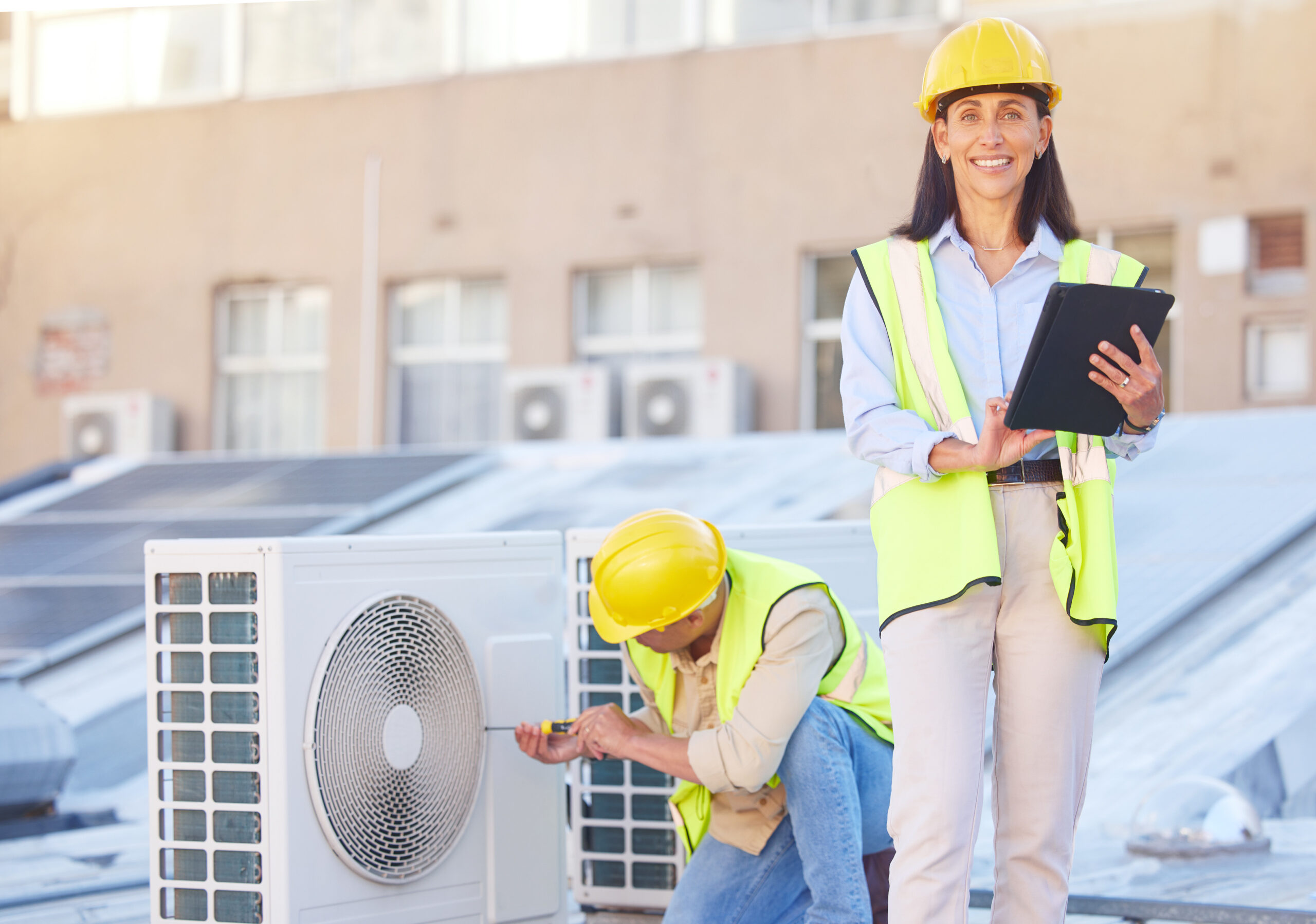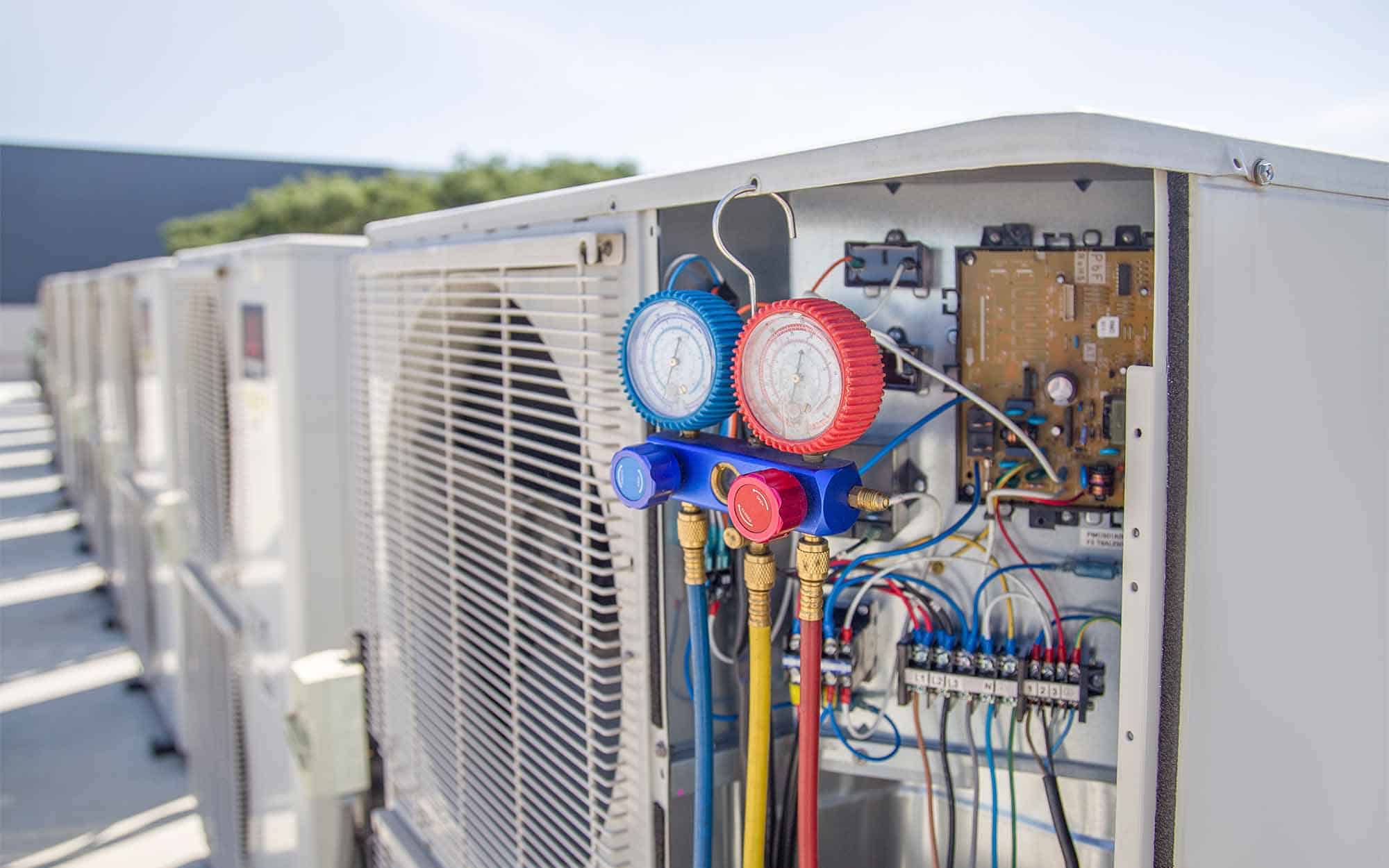The Complete Maintenance List During heat pump service
The Complete Maintenance List During heat pump service
Blog Article
Picking In Between a Warmth Pump and Heater: Trick Factors To Consider for Your Heating And Cooling Demands
When reviewing home heating choices for a/c requires, the choice between a heatpump and a heater can be intricate. Each system uses unique advantages customized to certain climates and power performance goals. Understanding these distinctions is important for making an informed selection. Key variables such as setup costs and ecological impact further make complex the selection process. Which alternative genuinely aligns with one's comfort and sustainability preferences? The following areas will discover these factors to consider in information.
Understanding Heat Pumps: Just How They Function and Their Advantages
While lots of property owners consider numerous home heating alternatives, comprehending just how heatpump feature and their advantages can significantly affect their decision. Warm pumps operate by transferring warmth instead of producing it. In the winter, they draw out warm from the outdoors air or ground and transfer it inside your home, while in the summer, they reverse this process, cooling down the home by expelling warm outside. This twin functionality makes them flexible for year-round environment control.One of the main advantages of heatpump is their energy performance. They utilize considerably less power compared to standard heating unit, possibly resulting in lower energy bills (heat pump service). Additionally, heatpump have a smaller carbon impact, making them an eco-friendly selection. They additionally require less upkeep than traditional systems, adding to lasting price financial savings. Generally, recognizing the technicians and advantages of heat pumps can aid house owners make informed decisions concerning their home heating and cooling down demands
Exploring Heaters: Types, Operation, and Advantages
Furnaces come in various types, consisting of gas, electric, and oil versions, each with distinctive functional mechanisms. Recognizing these differences is important, as they impact efficiency and heating performance. In addition, heaters offer various advantages, such as constant warm outcome and dependability in colder climates.
Sorts of Heating systems
Heating systems can vary significantly in design and procedure, with heating systems being a popular option amongst house owners. There are several types of furnaces, each making use of various fuel sources and technologies. Gas heating systems prevail, leveraging natural gas to create warmth efficiently. Electric heaters, on the various other hand, utilize electrical resistance to create heat, typically preferred for their straightforward installment. Oil furnaces, while much less typical, are efficient in locations with restricted gas gain access to (heat pump replacement ooltewah tn). Furthermore, condensing heaters maximize energy performance by recording and reusing exhaust gases. Each kind operates through a system of warm exchangers and ductwork to disperse warm air throughout a home. Understanding the distinctions in between these furnace kinds is important for informed a/c decisions
Benefits of Furnaces
For house owners seeking trusted warmth throughout cool months, the benefits of heating systems are substantial. Heating systems give regular heating, guaranteeing also temperatures throughout the home. They are particularly efficient in severe cold, commonly outmatching warmth pumps in cold problems. Various kinds, consisting of gas, electrical, and oil heaters, offer flexibility to satisfy diverse needs and preferences.Furnaces likewise tend to have lower initial installation prices contrasted to heatpump, making them a much more available option for several. Their robust style adds to a much longer lifespan, with several devices lasting over 15 years with appropriate maintenance. Additionally, modern furnaces are often furnished with innovative innovation for enhanced efficiency, which can lead to reduced power expenses. Overall, furnaces stay a trustworthy choice for reliable home heating.

Power Efficiency: Comparing Warmth Pumps and Furnaces
When comparing energy effectiveness in between warmth pumps and furnaces, the Seasonal Power Efficiency Proportion (SEER) plays a crucial duty in determining efficiency. In addition, an operational price evaluation exposes the long-term economic implications of each system. Recognizing these variables can lead homeowners in making educated decisions concerning their home heating options.
Seasonal Power Effectiveness Proportion
Power performance plays an important role in the decision-making process in between heatpump and heaters, especially when thinking about the Seasonal Power Effectiveness Proportion (SEER) This metric actions the cooling efficiency of warmth pumps over a whole cooling season, providing a standard means to review efficiency. Greater SEER rankings show greater energy effectiveness, converting to reduced power usage and decreased energy expenses. In contrast, furnaces are commonly assessed utilizing the Yearly Fuel Usage Performance (AFUE) rating, which mirrors heating performance. When comparing these two systems, home owners need to prioritize SEER rankings for warm pumps, as they straight impact total energy savings and environmental sustainability. A thorough understanding of SEER can significantly affect the long-term fulfillment and cost-effectiveness of the picked a/c option.
Operational Expense Evaluation
Recognizing the operational costs connected with heatpump and furnaces is vital for home owners assessing their options. Warmth pumps usually offer greater power efficiency, transforming electric energy into warmth with marginal waste. This results in reduced regular monthly energy expenses, particularly in moderate climates. On the other hand, standard furnaces, specifically gas designs, might have lower in advance prices yet can sustain greater functional expenditures with time as a result of fuel costs and performance ratings.Moreover, heat pumps can work as both heating and cooling systems, potentially reducing the need for different a/c units. While first investments for heatpump may be greater, their lasting savings in power efficiency can make them a more cost-efficient selection for many families. Careful evaluation of neighborhood power rates is necessary to determine the most effective alternative.
Installment Expenses: What to Anticipate for Each Heating Unit
Setup costs for furnace can differ significantly in between heatpump and heating systems, influencing home owners' decisions. Heatpump usually have greater upfront installation costs, generally varying from $3,500 to $8,000, depending upon the unit size and intricacy of installation. This consists of the more information outside system, interior handling system, and essential ductwork modifications. Alternatively, furnaces often tend to have lower first prices, balancing between $2,500 and $6,000, which can be appealing for budget-conscious home owners. However, installation expenditures can raise if extensive ductwork is required.Moreover, the option of fuel type for heating systems-- natural gas, lp, or electric-- can likewise influence installation prices. While warm pumps use power performance, their preliminary financial investment may hinder some customers. Ultimately, examining installment expenses alongside long-term cost savings and effectiveness will certainly help house owners in making informed decisions about their heater.
Climate Considerations: Which System Executes Much Better in Your Area
Exactly how do environment problems influence the effectiveness of furnace? The performance of warmth pumps and furnaces can vary considerably relying on the local climate. In modest environments, heatpump excel by effectively moving warm from the outside air, making them an energy-saving alternative. Nonetheless, their efficiency diminishes in very chilly temperature levels, where they may have a hard time to draw out enough heat. Conversely, heaters, particularly gas models, provide consistent and dependable warmth no matter outdoor problems, making them better in colder regions.In areas that experience milder wintertimes, warmth pumps can operate effectively year-round, offering both cooling and heating. In contrast, regions with extreme winters months commonly take advantage of the robustness of heating systems. Ultimately, understanding the local climate is important when deciding between a warmth pump and a furnace, as it straight impacts their functional efficiency and overall performance.
Upkeep Needs: Long-Term Care for Warmth Pumps vs. Furnaces
While both heatpump and heaters call for routine maintenance to assure peak efficiency, their details web demands and care routines differ substantially. Heaters commonly need less constant attention, with annual assessments being enough to check for gas leakages, clean filters, and examine general performance. Their easier design commonly permits for simple repairs.In contrast, heatpump require biannual upkeep as a result of their double role in cooling and heating. This includes cleaning coils, inspecting refrigerant levels, and ensuring that both the indoor and outside devices function at their finest. In addition, heatpump maintenance commonly entails more complex elements, making specialist maintenance essential.Neglecting upkeep can result in reduced efficiency and increased power costs for both systems. Inevitably, home owners ought to consider these lasting care needs when selecting between a warm pump and a furnace, as aggressive upkeep can extend the lifespan and efficiency of either system considerably.
Ecological Influence: Choosing a Lasting Heating Alternative
The environmental effect of home look at here heating systems is a crucial assessment for homeowners seeking sustainable alternatives. Heat pumps are generally much more energy-efficient than typical heaters, as they transfer warm instead of produce it, significantly reducing carbon exhausts. By making use of renewable resource sources, such as geothermal or air-source warmth pumps, homeowners can further decrease their eco-friendly footprint.On the various other hand, gas heating systems give off greenhouse gases and add to air pollution, though they frequently supply greater heat result. Improvements in technology have actually led to the advancement of high-efficiency heaters that decrease emissions.Ultimately, selecting a heating system entails evaluating effectiveness against ecological influence. Home owners are motivated to assess neighborhood power sources and incentives for eco-friendly systems, guaranteeing an option that lines up with both personal comfort and ecological responsibility. The choice impacts not just prompt convenience yet also lasting sustainability and environmental health and wellness.
Frequently Asked Concerns
The Length Of Time Do Warm Pumps and Furnaces Typically Last?
The lifespan of heatpump normally ranges from 15 to 20 years, while furnaces can last between 15 to three decades. Routine maintenance substantially impacts their durability and effectiveness in offering heating solutions.
Can I Make Use Of a Heatpump in Extremely Cold Climates?
Heat pumps can operate in very cold climates, yet their efficiency reduces as temperature levels drop. In such conditions, extra heating resources might be needed to preserve comfortable indoor temperatures and ensure peak efficiency.

What Is the Noise Degree of Warm Pumps Versus Furnaces?
The sound levels of warmth pumps and heating systems vary significantly. Usually, heatpump operate more silently than typical furnaces, making them better for those delicate to seem, while furnaces may create louder functional noises during home heating cycles.
Are Warm Pumps Suitable for Both Cooling And Heating?
Heatpump are certainly suitable for both heating & cooling (heat pump service). They work by moving warmth, providing efficient temperature level control year-round, making them a flexible choice for home owners seeking an all-in-one a/c service
What Dimension Furnace Do I Need for My Home?
Figuring out the proper dimension heating unit for a home needs examining factors such as square video, insulation top quality, neighborhood environment, and the home's design. Consulting a professional can guarantee an exact assessment and optimal convenience. Warmth pumps commonly offer higher power performance, transforming electrical energy right into warm with minimal waste. In moderate environments, warmth pumps succeed by efficiently moving warmth from the outside air, making them an energy-saving alternative. On the other hand, furnaces, specifically gas designs, provide reputable and consistent warmth regardless of outside conditions, making them more effective in cooler regions.In locations that experience milder winters months, warmth pumps can operate properly year-round, offering both home heating and cooling. Heat pumps are normally a lot more energy-efficient than conventional heaters, as they transfer heat rather than produce it, considerably minimizing carbon discharges. By utilizing renewable energy sources, such as air-source or geothermal warm pumps, property owners can additionally reduce their eco-friendly footprint.On the various other hand, natural gas furnaces produce greenhouse gases and contribute to air contamination, though they frequently provide greater heat output.
Report this page